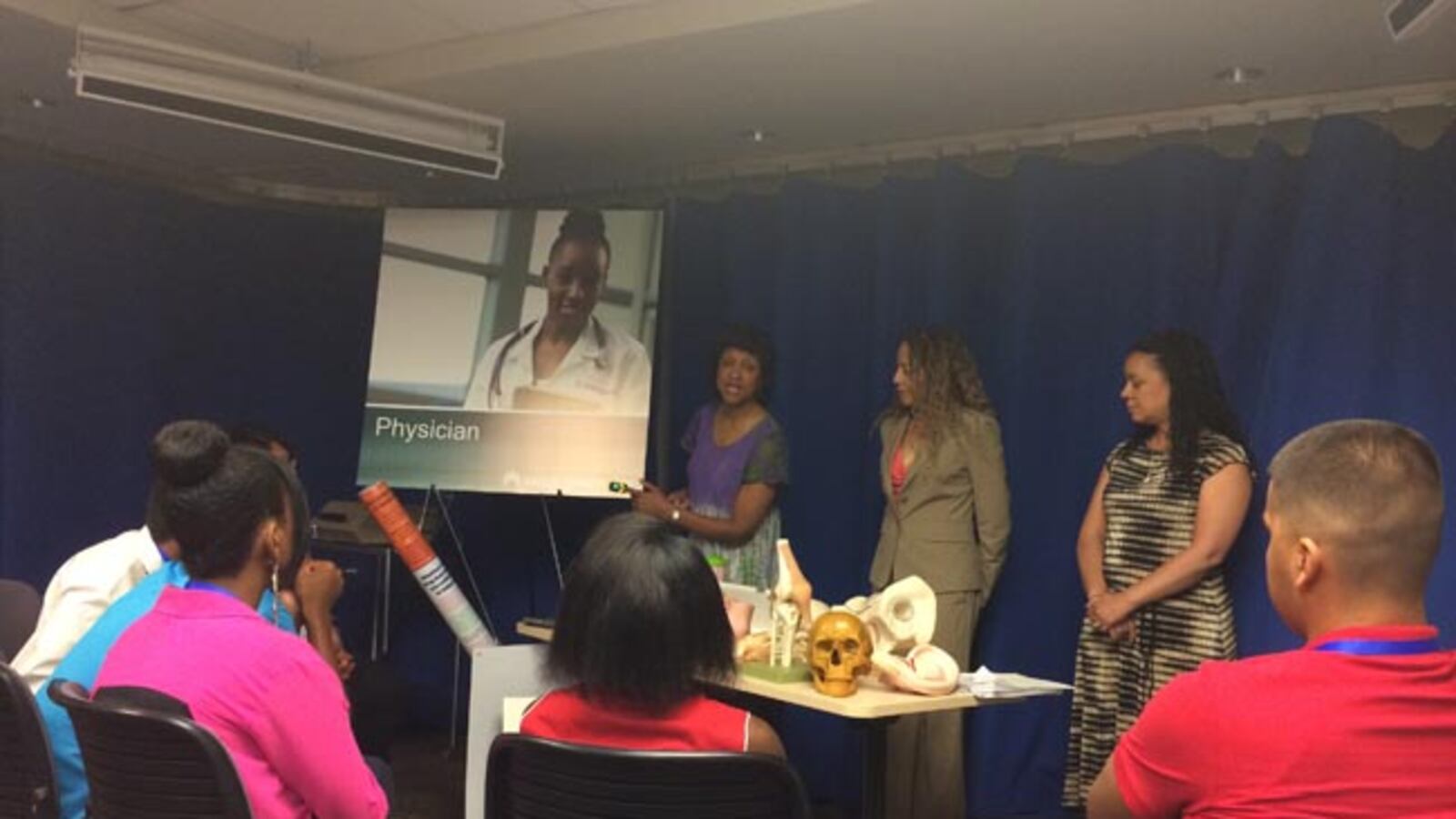Renzo Laynes has a clear favorite childhood memory: when his father, who worked in healthcare, would pick him and his brother up in an ambulance after a house call and drive them around the neighborhood.
But he didn’t know that he could turn that beloved childhood memory into a career.
Growing up as a Peruvian immigrant in Denver and relying on his mother’s income as a teacher gave Laynes little access to college-readiness programs and career advice. It was through programs like Councilman Chris Herndon’s Northeast Denver Leadership Week and the community involvement of places like Kaiser Permanente that Laynes said enabled him to pursue a successful future. Now, he’s entering his third year at the University of Colorado – Boulder, studying integrative physiology.
On Monday, Laynes, a recipient of Kaiser Permanente’s Diversity Scholarship, told his story to 70 high school students, kicking off the event’s fourth year. The goal of the week is to expose Denver high school students to career paths they might not have considered and in doing so, creating a more diverse workforce down the line.
Speakers at the event ranged from doctors to radiologists. A small group led by Dr. Terri Richardson, a Denver native and doctor of internal medicine at Kaiser Permenente, touched on the different careers in healthcare — from internal medicine, her specialty, to physician assisting — as well as the need for more youth of color in these fields.
“We need to do more with our young people, especially our young people of color,” she said. “I’ve been in practice 27 years. We need some younger people that are going to be leaders in every field, certainly in medicine. There’s got to be some young people we’re bringing forth that are going to feel comfortable and empowered enough to lead in the future.”
Dr. Jandel Allen-Davis, vice president of government and external relations at Kaiser Permanente, said diversity in healthcare fields plays a crucial role not only to get more people of color working in these fields, but also to convince patients to actually come to their physicians and heed their advice. Addressing health disparities in varying ethnic groups takes personal knowledge and passion.
“Patients are far more likely to adhere to treatment and have a good relationship with their physician or care provider if they look like them,” Allen-Davis said.
For that reason, Herndon said he makes a deliberate effort to have people from all different backgrounds speak to students.
“A lot of our students aren’t originally from this country, but if they see somebody interested in a medical career and hear their story, they think ‘Wow, that’s something that I can do as well,’ so it’s very important that we have speakers that have diverse backgrounds,” he said.

